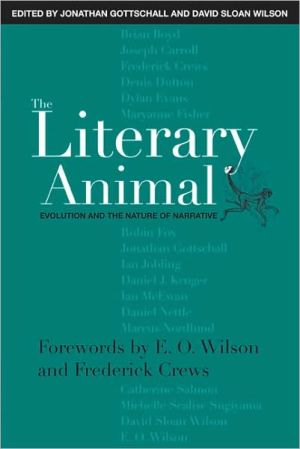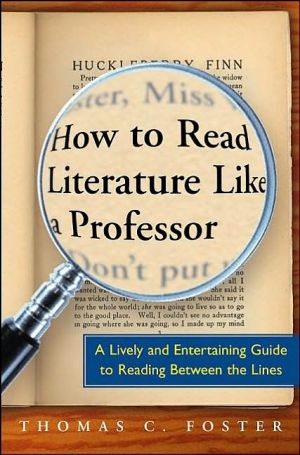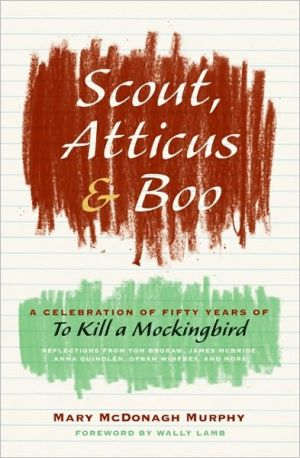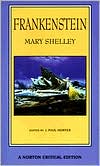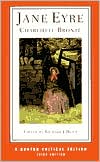Literary Animal: Evolution and the Nature of Narrative
In recent years, articles in major periodicals from the New York Times Magazine to the Times Literary Supplement have heralded the arrival of a new school of literary studies that promises-or threatens-to profoundly shift the current paradigm. This revolutionary approach, known as Darwinian literary studies, is based on a few simple premises: evolution has produced a universal landscape of the human mind that can be scientifically mapped; these universal tendencies are reflected in the...
Search in google:
Literary critics and psychologists from North America, Oceania, and Britain debate whether evolutionary theory in any of its myriad forms can convincingly shed light on how literature changes. The chafing between naturalism and social constructivism is apparent in the essays. The topics include the psychological foundations of drama as revealed in Hamlet, evidence of special design in the reverse-engineering of narrative, and a modest manifesto and testing the hypotheses of feminist fairy tale studies. No index was agreed upon. Annotation ©2006 Book News, Inc., Portland, OR
The Literary Animal\ Evolution and the Nature of Narrative \ \ \ Northwestern University Press \ Copyright © 2005 \ Northwestern University Press\ All right reserved.\ \ ISBN: 978-0-8101-2287-1 \ \ \ \ \ Chapter One Evolution and Literary Theory \ The subject of literary studies is ultimately the human mind-the mind that is the creator, subject, and auditor of literary works. The prime activity of literary critics of all theoretical and political slants has been to pry open the craniums of characters, authors, and narrators, climb inside their heads, and spelunk through all the bewildering complexity to figure out what, ultimately, makes them tick. What are they trying to say? What does all this mean? When engaged in these activities literary scholars lean hard on theories of human nature. Sometimes these theories are explicitly codified, as they are, for instance, in some Marxist, feminist, and psychoanalytic schools. Sometimes they are not, as when traditional literary critics base their judgments on personal intuitions about the regularities and rhythms of human psychology. But at the core of all the classes and orders of literary scholarship are assumptions about the nature of human beings: our capacities, our limits, our ultimate motives, our wants and needs, our strengths and weaknesses.\ The theories of human nature that have dominated humanities scholarship over the last several decades are based on the nearly limitless capacity of what Durkheim called "the social factor" to mold and manipulate the biological factor. In these models, human behavior, psychology, and culture are seen as products of arbitrary social conditioning with none but the most gossamer and inconsequential ties to our evolved biology. These "hard" versions of social constructivism cannot stand up to the evidence-theory and data from biology, behavioral genetics, psychology, cognitive science, cross-cultural anthropology, and other fields have definitively cut the legs from beneath the tabula rasa perspective. The psychoanalytic theories that remain current in the humanities, although generally allowing somewhat greater scope for inborn biological tendencies, also fail in the face of the evidence. In short, the theories of human nature that have dominated literary theory and criticism since the 1960s now only exist in the humanities. While literary scholars are often suspicious of concepts like "right" and "wrong" or "true" and "false," the dominant theories of human potential in literary studies have been falsified. This is now a matter of scientific "fact," as the term is defined by Stephen Jay Gould: "Confirmed to such a degree that it would be perverse to withhold provisional consent."\ The articles in this section represent attempts to grapple with some of the problems and opportunities presented by the collapse of the constructivist foundations of contemporary literary theory. These articles represent attempts to explore specific problems in literary theory from the perspective of the evolution-based theories of human nature that are now replacing extreme social constructivist versions. However, none of these authors suggest that social constructivism in a more reasonable form is dead. In fact, the nature-nurture dichotomy is a false one-a more restrained version of social constructivism is fully compatible with the emerging evolutionary models of human nature.\ Literature, Science, and Human Nature\ Ian McEwan\ Greatness in literature is more intelligible and amenable to most of us than greatness in science. All of us have an idea, our own, or one that has been imposed upon us, of what is meant by a great novelist. Whether it is in a spirit of awe and delight, duty or scepticism, we grasp at firsthand when we read Anna Karenina or Madame Bovary what people mean when they speak of greatness. We have the privilege of unmediated contact. From the first sentence, we come into a presence, and we can see for ourselves the quality of a particular mind; in a matter of minutes we may read the fruits of a long-forgotten afternoon, an afternoon's work done in isolation, a hundred and fifty years ago. And what was once an unfolding personal secret is now ours. Imaginary people appear before us; their historical and domestic circumstances are very particular, their characters equally so. We witness and judge the skill with which they are conjured. By an unspoken agreement, a kind of contract between writer and reader, it is assumed that however strange these people are, we will understand them readily enough to be able to appreciate their strangeness. To do this, we must bring our own general understanding of what it means to be a person. We have, in the terms of cognitive psychology, a theory of mind, a more-or-less automatic understanding of what it means to be someone else. Without this understanding, as psychopathology shows, we would find it virtually impossible to form and sustain relationships, read expressions or intentions, or perceive how we ourselves are understood. To the particular instances that are presented to us in a novel we bring this deep and broad understanding. When Saul Bellow's Herzog stands in front of a mirror, as characters in fiction so often and conveniently do, he is wearing only a newly purchased straw hat and underpants.\ [His mother] wanted him to become a rabbi and he seemed to himself gruesomely unlike a rabbi now in the trunks and straw hat, his face charged with heavy sadness, foolish utter longing of which a religious life might have purged him. That mouth!-heavy with desire and irreconcilable anger, the straight nose sometimes grim, the dark eyes! And his figure!-the long veins winding in the arms and filling in the hanging hands, an ancient system, of greater antiquity than the Jews themselves.... Bare legged, he looked like a Hindu.\ A reader may not understand from the inside every specific of Herzog's condition-a mid-twentieth-century American, a Jew, a city dweller, a divorcé, an alienated intellectual-nor might a young reader sympathize with the remorse of early middle age, but self-scrutiny that is edging toward a reckoning has a general currency, as does the droll, faux naive perception that one's biology-the circulatory system-predates and, by implication, is even more of the essence of being human than one's religion. Literature flourishes along the channels of this unspoken agreement between writers and readers, offering a mental map whose north and south are the specific and the general. At its best, literature is universal, illuminating human nature at precisely the point at which it is most parochial and specific.\ Greatness in science is harder for most of us to grasp. We can make a list of scientists we've been told are great, but few of us have had the kind of intimate contact that would illuminate the particular qualities of the achievement. Partly, it is the work itself: it does not invite us in; it is objectifying, therefore distancing, corrupted by difficult or seemingly irrelevant detail. Mathematics is also a barrier. Furthermore, scientific ideas happily float free of their creators. Scientists might know the classical laws of motion having never read Newton on the matter or grasp relativity from textbooks without reading Einstein's special or general theories or know the structure of DNA without having-or needing-a firsthand knowledge of Crick and Watson's 1953 paper.\ Here's a good case in point. Their paper, a mere twelve hundred words, published in the journal Nature, ended with the famously modest conclusion: "It has not escaped our notice that the specific pairing we have postulated immediately suggests a possible copying mechanism for the genetic material." "It has not escaped our notice"-the drawing-room politesse of the double negative is touchingly transparent. It roughly translates as "Look at us everybody! We've found the mechanism by which life on earth replicates; we're excited as hell and can't sleep a wink." "It has not escaped our notice" is the kind of close contact I mean. It is not easily come by at firsthand.\ However, there is one preeminent scientist who is almost as approachable in this respect as a novelist. It is perfectly possible for the nonscientist to understand what it is in Darwin's work that makes him unique and great. In part, it is the sequence of benign accidents that set him on his course, each step to be measured against the final achievement. And partly it is the subject itself. Natural history, or nineteenth-century biology generally, was a descriptive science. The theory of natural selection is not, in its essentials, difficult to understand, though its implications have been vast, its applications formidable, and the consequences in scientific terms quite complex-as the computational biology of the late Bill Hamilton shows. Partly too because Darwin, though hardly the greatest prose writer of the nineteenth century, was intensely communicative, affectionate, intimate, and honest. He wrote many letters and filled many notebooks.\ Let us read his life as a novel, like Herzog, driving forward toward a great reckoning. The sixteen-year-old Charles is at the university in Edinburgh and beginning to show disillusionment with the study of medicine. He writes to his sisters that he is "going to learn to stuff birds, from a blackamoor." Charles took his lessons in taxidermy from one John Edmonstone, a freed slave, and found his teacher "very pleasant and intelligent." Edmonstone recounted to the young Darwin his experiences as a slave and described the wonders of a tropical rain forest to him. All his life, Darwin abhorred slavery, and this early acquaintanceship may have had some bearing on the relatively neglected book of Darwin's I want to discuss. The following year Darwin comes in contact with the evolutionary ideas of Lamarck and, in the Edinburgh debating societies, hears passionate, godless arguments for scientific materialism. He spends days foraging along the shores of the Firth of Forth looking for sea creatures, and in an 1827 notebook he records detailed observations of two marine invertebrates.\ Since Charles did not warm to the prospect of becoming a physician, his father "proposed that I should become a clergyman. He was very properly vehement against my turning an idle sporting man, which then seemed my probable destination." So he studied at Cambridge, where, at the age of eighteen, his love of natural history is becoming a passion. "What fun we will have together," he writes to his cousin. "What beetles we will catch, it will do my heart good to go once more together to some of our old haunts ... we will make regular campaigns into the Fens; Heaven protect the beetles." And in another letter, "I am dying by inches from not having anybody to talk to about insects." In his last two terms his mentor, Henslow, professor of botany, persuades him to take up geology.\ After Cambridge, the offer comes through Henslow to be the naturalist and companion to the captain on board the Beagle, making a government survey of South America. We may follow the wrangling as he persuades his father, with the help of Uncle Josiah Wedgewood. "I must state again," implores the earnest Charles, "I cannot think it would unfit me hereafter for a steady life." Many weeks of delay, then after two false starts, he sets sail on December 27, 1831. Days of seasickness, then the Beagle is prevented by quarantine measures from landing in La Palma in the Canaries. But Charles has a net in the stern of the ship; the weather is fine, and he catches "a great number of curious animals, and fully occupied my time in my cabin." Finally, landfall at St. Jago in the Cape Verde Islands, and the young man is in ecstasy. "The island has given me so much instruction and delight," he writes to his father, "it is utterly useless to say anything about the scenery-it would be as profitable to explain to a blind man colors, as to a person who has not been out of Europe, the total dissimilarity of a tropical view.... Whenever I enjoy anything I always look forward to writing it down.... So you must excuse raptures and those raptures badly expressed."\ He enjoys working in his cramped cabin, drawing and describing his specimens of rocks, plants, and animals and preserving them to send them back to England to Henslow. The enthusiasm does not die as the expedition proceeds, but to it is added a growing scientific confidence. He writes to Henslow:\ Nothing has so much interested me as finding two species of elegantly coloured Planariae, inhabiting the dry forest! The false relation they bear to snails is the most extraordinary thing of the kind I have ever seen ... some of the marine species possess an organization so marvellous that I can scarcely credit my eyesight.... Today I have been out and returned like Noah's ark, with animals of all sorts.... I have found a most curious snail, and spiders, beetles, snakes, scorpions ad libitum. And to conclude, shot a Cavia weighing one hundredweight.\ With vast quantities of his preserved specimens preceding him, and already being described, and with his own theories about the formation of the earth and of coral reefs taking shape in his mind, Darwin arrives back in England five years later, at the age of twenty-seven, already a scientist of some standing. There is something of the thrill and illumination of great literature when Darwin, at the age of twenty-nine, only two years after he had returned from his voyage on the Beagle and still twenty-one years before he would publish The Origin of Species, confides to a pocket notebook the first hints of a simple, beautiful idea: "Origin of man now proved.... He who understands baboon would do more towards metaphysics than Locke."\ And yet The Origin of Species itself does not allow an easy route into an understanding of Darwin's greatness. Read as a book rather than as a theory, it can overwhelm the nonspecialist reader with a proliferation of instances-the fruits of Darwin's delay-and it is significant that the most frequently quoted passages occur in the final paragraph.\ Darwin was the sort of scientist whose work completely permeated his life. His study of the earthworms in the garden at Downe is well known. He attended country markets to quiz horse, dog, and pig breeders, and at country shows he sought out growers of prize vegetables. Always a warmly devoted father, he recorded in a notebook, "My first child was born on December 27th 1839, and I at once commenced to make notes on the first dawn of the various expressions which he exhibited." Long before an innate theory of mind had been postulated, Darwin was experimenting with his eldest child, William, and reaching his own conclusions:\ When a few days over six months old, his nurse pretended to cry, and I saw that his face instantly assumed a melancholy expression, with the corners of the mouth strongly depressed. Therefore it seems to me that an innate feeling must have told him that the pretended crying of his nurse expressed grief; and this, through the instinct of sympathy, excited grief in him.\ (Continues...)\ \ \ \ \ Excerpted from The Literary Animal\ Copyright © 2005 by Northwestern University Press . Excerpted by permission.\ All rights reserved. No part of this excerpt may be reproduced or reprinted without permission in writing from the publisher.\ Excerpts are provided by Dial-A-Book Inc. solely for the personal use of visitors to this web site.\ \
Foreword from the Scientific SideviiForeword from the Literary SidexiiiIntroduction: Literature-a Last Frontier in Human Evolutionary StudiesxviiPart IEvolution and Literary TheoryLiterature, Science, and Human Nature5Evolutionary Social Constructivism20From Lacan to Darwin38What Happens in Hamlet? Exploring the Psychological Foundations of Drama56Human Nature and Literary Meaning: A Theoretical Model Illustrated with a Critique of Pride and Prejudice76The Problem of Romantic Love: Shakespeare and Evolutionary Psychology107Male Bonding in the Epics and Romances126Part IIThe Evolutionary Riddle of ArtEvolutionary Theories of Art147Reverse-Engineering Narrative: Evidence of Special Design177Part IIIDarwinian Theory and Scientific MethodsQuantitative Literary Study: A Modest Manifesto and Testing and Hypotheses of Feminist Fairy Tale Studies199Proper Hero Dads and Dark Hero Cads: Alternate Mating Strategies Exemplified in British Romantic Literature225Crossing the Abyss: Erotica and the Intersection of Evolutionary Psychology and Literary Studies244Afterword259Works Cited265Contributors301
